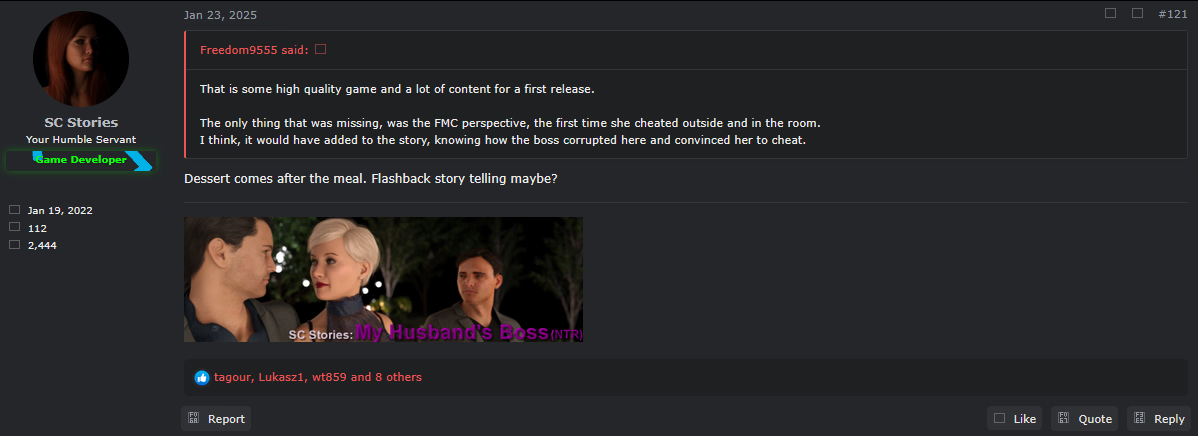I'll answer by putting the problem this way: Why moral indignation (though justified) is not the right way to deal with this.
1. It leaves the husband deserted, defenseless: Part of Hutch's shock is probably that he thought he could rely on a set of moral values and "no go"s which had the power to lead and restrain his wife in such a situation, to hold a grip over her even if the great romantic feeling after 20 years wasn't enough to do that anymore. And he saw that he couldn't. But there is an even more important point he has to confront here: there is no such vital and authoritative and self-evident moral framework which he could appeal to. For decades we live in a moral paradigm which almost solely relies on the principles of consent and no-harm, which protects individual rights and bodies, but not commitments, loaylties and bonds (and here porn, far from being a morally exemptive zone is on the contrary even more diligently and carefully following this modern moral imperative than the rest of society). The old moral regime which would have translated his hurt into clear-cut moral accusations against the wife (adultery, indecency, recklessness, prostitution, indignity etc) has become outdated ridiculous and impotent. We even have discussions here if we are allowed to call her a "hoe" with a judgmental undertone (while we are invited to call her a slut happily to add to the fun while gangbanging her anytime of course). Conclusion: it is another quality of the game, that it demonstrates in all necessary clarity how out in the open, helpless Hutch with regard to the current moral discourse really is here in such a situation. He has nowhere to go ideologically-ideally. He has lost the marital bed and doesn't even get to hold at least the moral high ground in return. He has to restrain his anger towards the wife if he does not want to make himself open to moral attack. And that is exactly what we see in the discussion with his wife later: no moral arguments and accusations really, just this helpless pseudo-therapeutic talk to manage the situation, supposedly together. No apology, no confrontation, no reckoning (and this is the same in other games). On the other hand the only time old-style moral agtuments are made here characteristically is when the boss manipulates Hutch in accepting the situation - here we hear concepts like "sacrifice" and manliness. They are usable only as a weapon against Hutch, not to his defense. So he can only lose and run into discursive traps if he would try to deal with the whole situation in moral terms, that's at least how I see it.
2. It falls short of grasping the real problem: This has the advantage of laying open what the real prolbem is. My anger didn't stay long with the wife but was busy with the question how Hutch ended up in such a pitiful situation. What did him make the loser he is in this situation? This was not due to the moral failure of his wife but the other way around. One could say she makes the right assumption and goes with the more powerful guy. Disappointing, yes, ,but behaviourally understandable (therefore I always stress the vibe of inscurity and panic she gives off the whole time). The existential anger starts with the realization that Hutch has been fooled to think like he does and trained to behave like he does, trained to be weak. He thought his dependence on the boss, his happy adjustment to the requirements of the coporate world wouldn't have any repercussions on how his wife perceives him, how she feels about him. On the contrary, he, trained to think in reward-for-compliance patterns thought she would reward him for a "stability" which could break down any time because it wasn't really his. He was fooled into believing that his impotence would be graciously overlooked by his wife and not turned against him the very first time she sees a functioning cock. It's this way of living itself which lured him in ignoring the realities underlying lofty moral concepts. But the post already is too long.












